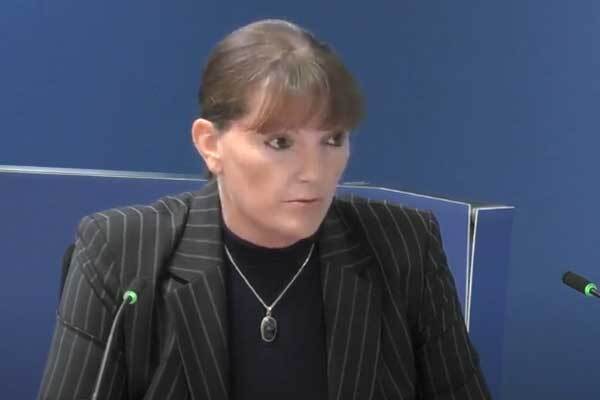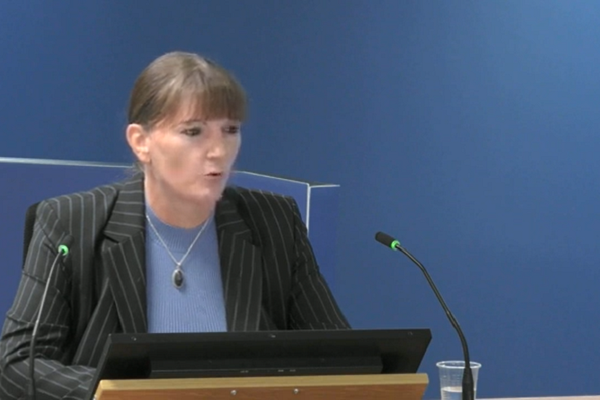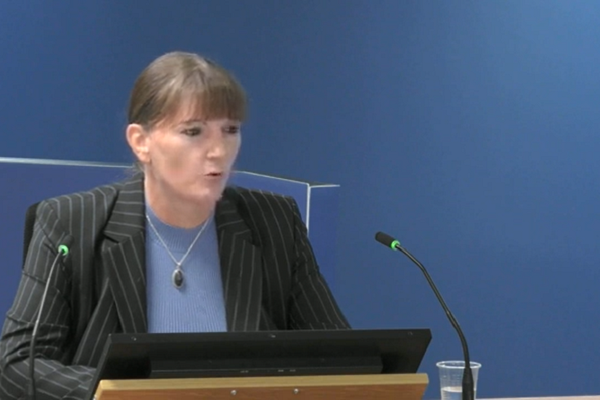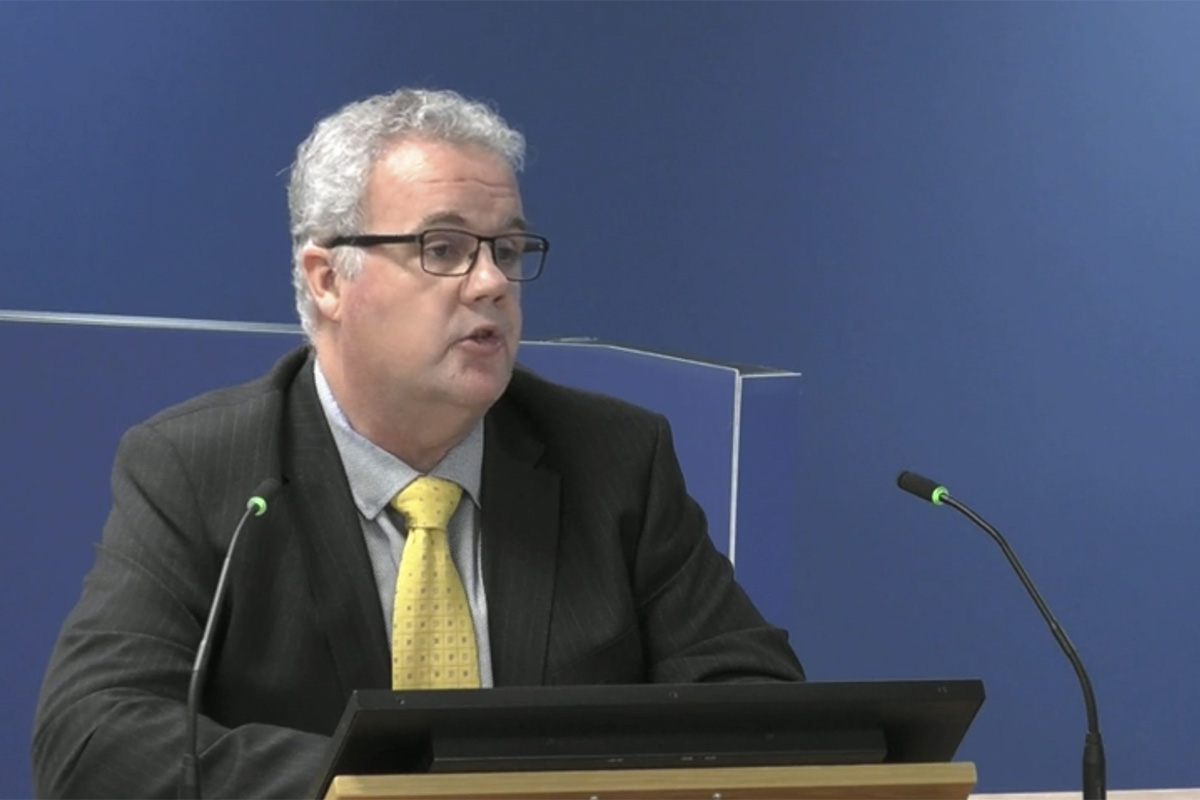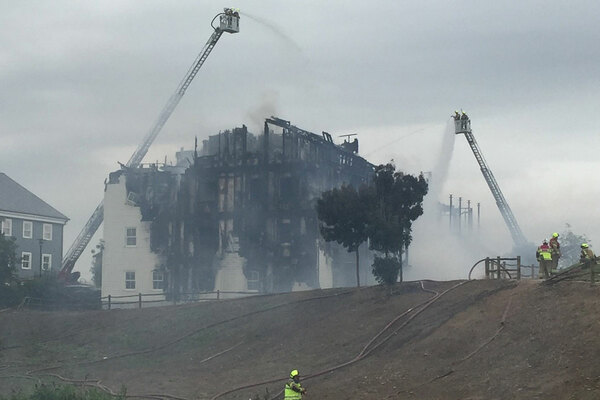London Fire Brigade warned government of high-rise fire fears weeks before Grenfell
The London Fire Brigade (LFB) warned the government about fire risks in high-rise residential buildings on two occasions in the weeks before the Grenfell Tower fire, the inquiry into the blaze revealed today.
In evidence given this morning, it was revealed that letters were sent to the UK government and the Conservative Party weeks before the tragedy in which 72 people died, occurred.
Shown the documents, Dany Cotton, commissioner of the LFB at the time of the fire, admitted that the brigade did have some knowledge of the risk of a large high-rise fire before Grenfell. This contrasts with her previous claim to the inquiry in 2018 that fire was as foreseeable as “a space shuttle landing on the Shard”.
During the questioning of Ms Cotton this morning, lead counsel Richard Millett QC presented her with a letter sent by the LFB to the then housing minister Gavin Barwell in April 2017, fewer than two months before the Grenfell Tower fire.
The letter, which was signed by Ms Cotton, highlighted growing concern within the LFB over the quality of construction in some residential blocks, and particularly blocks of flats.
The letter said the standard of compartmentation in these blocks (their ability to contain fire within a single flat, or compartment) is critical to protecting residents and firefighters, but the LFB had become aware of blocks with “significant compartmentation deficiencies”.
It said these deficiencies had been discovered in at least one building every month since the start of 2017, and that “it was safe to assume that there were many other cases that had not come to its [LFB’s] attention”.
It warned compartmentation was crucial to “protecting other residents as well as protecting firefighters from unseen or unusual firespread”.
In his phase-one report, covering the events of the night of the fire, Sir Martin Moore-Bick, the chairman of the inquiry, concluded that the building had suffered from a “total compartmentation failure” and the compartmentation deficiencies had helped the spread of smoke and fire through the building.
There are also leaseholders in thousands of buildings across the country that are facing eye-watering bills to fix compartmentation issues, such as missing or defective cavity barriers.
The letter to Mr Barwell, who went on to be appointed chief of staff to prime minister Theresa May, concluded that the LFB was concerned about contractor competency, and “how this influences compartmentation deficiencies and therefore occupants’ safety in respect of a fire”. It added that the brigade would like to request a meeting with the minister to discuss these “key issues”.
When asked if she had ever met Mr Barwell to discuss the issues raised in the letter, she said: “I think we did. I’m sorry, I had so many meetings with external people I can’t specifically remember, but I imagine the fire safety team would have met with him.”
Inside Housing revealed in 2019 that a number of letters sent to Mr Barwell pushing for recommendations to be acted upon in the build-up to the Grenfell Tower fire went unanswered.
The evidence this morning showed that this was not the only warning the government received from the LFB regarding the issue of poor-quality construction and compartmentation issues within the block.
In late April 2017, the LFB sent a letter to Conservative MP Ben Gummer ahead of the publication of the Conservative Party manifesto, in which it wanted the party to include some of its proposals.
The letter, which was sent to other major political parties, included nearly the exact same wording as the one sent to Mr Barwell.
However, it also included three proposals that it wanted the party to consider including in its manifesto for the 2017 election, which took place on 7 June, just days before the Grenfell tragedy.
The proposals included a call to “ensure the quality of housing and a safeguard of building regulations”, which included a plan to extend the deadlines for which building control can take enforcement action against contractors that don’t meet building regulations.
It added that the current deadlines, which expired only 12 months after the building was completed, limited the powers of building control bodies and could “leave a legacy of problems that can significantly impact the safety of residents”.
Ms Cotton admitted that she would have signed the letter, but could not recall it as, at the time, she had around “20 to 30 similar letters” landing on her desk every week.
Her evidence concluded with Mr Millett asking if she had changed any of her opinions about the LFB’s preparedness to successfully fight the Grenfell Tower fire since she last gave evidence in 2018.
At the time, Ms Cotton had famously said that it was the LFB’s job to “expect the unexpected”, but it did not “make plans for a space shuttle to land on the Shard”. She had also said she would not change anything about the LFB’s response to the fire.
However, today she admitted that the LFB did have some built-in knowledge about the types of issues it faced on the night of the Grenfell Tower fire.
She said: “Having had the time to reflect, and [looking at] the knowledge and understanding the LFB had, it is my view that we had a lot of organisational knowledge.
“I still think that the knowledge that the LFB and UK fire service had could not have anticipated such a catastrophic failure of any building with so many breaches, but yes, we did have knowledge of various aspects, and that has become evident from the documents that I have read.”
When asked if there was anything she would have done differently during her time at the LFB to better equip commanders with skills to tackle the Grenfell blaze, she said: “I think, organisationally, we had information we could have shared and that could have been translated into training for all members of London Fire Brigade, which would have better assisted them.”
Sign up for our weekly Grenfell Inquiry newsletter
Each week we send out a newsletter rounding up the key news from the Grenfell Inquiry, along with the headlines from the week
Already have an account? Click here to manage your newsletters
